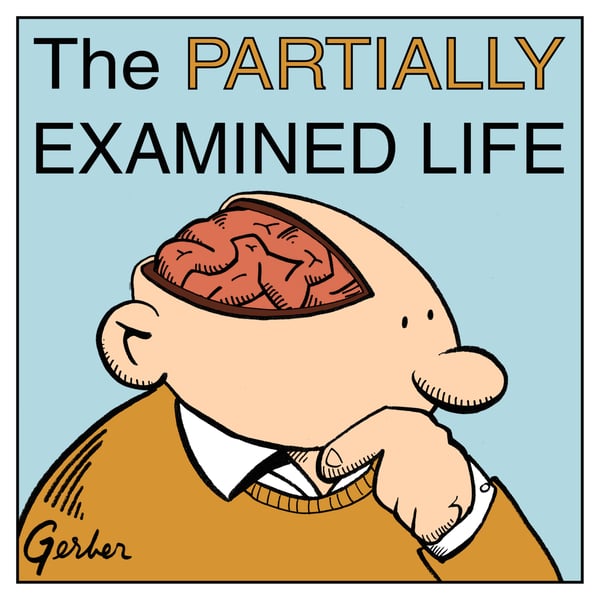Ep. 258: Locke on Acquiring Simple Ideas (Part Two)
The Partially Examined Life Philosophy Podcast
Mark Linsenmayer
4.6 • 2.3K Ratings
🗓️ 15 December 2020
⏱️ 56 minutes
🧾️ Download transcript
Summary
Continuing on Book II (through ch. 20) of John Locke's Essay Concerning Human Understanding (1689).
How do we acquire our ideas of pain and pleasure, duration and motion? We talk primary (shape, size) and secondary (color, sound) qualities, the former of which are supposed to be actually in objects, and the latter just in our mind. Plus, is Locke really an atomist about experience?
Start with part one or get the unbroken, ad-free Citizen Edition.
Sponsors: Organize your Inbox: Save $25 sanebox.com/pel. See headspace.com/PEL for a free month of guided meditations. Have your donation matched up to $250 at givewell.org/PEL (choose podcast and partially examined life at checkout).
Transcript
Click on a timestamp to play from that location
| 0:00.0 | The Partial Exam of Life relies on your support to find out how to help in ways that are cheap or even free for you. |
| 0:05.4 | Please visit partialexaminalife.com slash support. |
| 0:17.0 | You're listening to the Partial Exam of Life episode 258. |
| 0:20.2 | We've been talking about Book Two of John Locke's essay concerning human understanding. |
| 0:25.0 | We've got very hung up on what an idea is, what the mind is. |
| 0:29.3 | I think we're going to want to go forward to the most famous thing here. |
| 0:32.8 | This primary versus secondary quality thing, been spent a lot of time on that in the second half. |
| 0:37.8 | Can we sum up what some of the content is on the way to there? |
| 0:41.6 | So for instance, there's a long, really an argument with Descartes. |
| 0:45.4 | We've been talking just kind of what the mind is. |
| 0:47.2 | And if the mind is equivalent to thinking, then you might think that if you're not thinking, then the mind goes away. |
| 0:53.3 | And so he he argues for way too long that no, you could have a dreamless sleep and your mind is still there. |
| 0:59.2 | So that seems like a historical artifact that nobody's really going to take the, |
| 1:03.9 | I don't even know if that's really Descartes' position that the mind disappears. |
| 1:07.3 | You know, it seems to follow from the idea that the essence of the mind is thinking that there's no thinking there. |
| 1:11.9 | There's nothing going on. |
| 1:13.4 | So let's jump forward maybe to, I guess there's one thing before we get to primary and second qualities. |
| 1:17.2 | Chapter seven of simple ideas of both sensation and reflection. |
| 1:21.1 | He's talking here about pleasure and pain. |
| 1:23.1 | He's given examples of different simple ideas that are just a matter of sensation |
| 1:27.3 | and just a matter of reflection, right? |
| 1:29.0 | So we've talked about sensation and then simple ideas of reflection include, for instance, |
... |
Please login to see the full transcript.
Disclaimer: The podcast and artwork embedded on this page are from Mark Linsenmayer, and are the property of its owner and not affiliated with or endorsed by Tapesearch.
Generated transcripts are the property of Mark Linsenmayer and are distributed freely under the Fair Use doctrine. Transcripts generated by Tapesearch are not guaranteed to be accurate.
Copyright © Tapesearch 2025.

